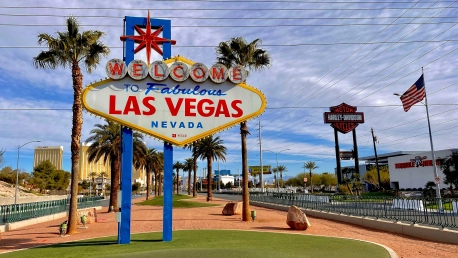Nevada has set the benchmark for gaming regulation, securing a reputation that has become a central pillar of the state’s identity and an exemplar worldwide. Yet, a recent case involving former casino executive Scott Sibella, charged with money laundering, brings a spotlight to the Silver State’s much-vaunted regulatory prowess. The integrity of Nevada’s gaming control system is being called into question as federal agencies increasingly step into purviews traditionally held by state regulators. What unfolds is a narrative that not only contests the efficacy of Nevada’s own gaming authority but also provokes a broader dialogue on the sustainability and robustness of traditional frameworks amid evolving legal and economic landscapes.
History of Nevada’s Gaming Oversight
When Nevada introduced its first gaming laws, it did so to create a fortress of oversight that was both unprecedented and unassailable. The state’s two-tiered regulatory system, comprising the Nevada Gaming Commission and the Gaming Control Board, was designed with a clear purpose: to autonomously oversee an industry that thrived in the desert heat. This structure not only laid the foundation for the gaming industry but also fortified public confidence and propelled the reputation of Nevada’s regulatory might to an internationally envied status. Over decades, this regulative edifice has had to modify itself, recalibrating in light of industry fluctuations and societal shifts, while staunchly guarding against perceived federal overreach.However, Nevada’s staunch defense of its regulatory dominion has been challenged by the forces of change. The landscape of gaming has become more complex, and the spell of technology and globalization has brought with it a whole new suite of oversight challenges—ones that the architects of Nevada’s initial regulatory structure might never have envisioned.
Federal Involvement in Nevada’s Gaming Dragnet
The changing of the guard from state to federal oversight was murkily heralded by the repeal of Regulation 6A, which previously required Nevada casinos to scrutinize and report large cash transactions. The burden of watchdogging these transactions was handed to federal authorities, marking the advent of a seismic shift in the power dynamics of gaming oversight. Subsequent to this change, a string of multi-million-dollar fines levied by federal agencies against eminent casinos in Nevada punctuated the narrative, signaling an intensified federal interest and scrutiny over anti-money laundering practices within the state’s gaming establishments.The role of federal agencies, particularly the U.S. Department of the Treasury’s Financial Crimes Enforcement Network, has grown pronounced, echoing an era of stringent federal regulation in a domain historically ruled by state supervision. While this shift signifies a commitment to rigorous financial probity, it also raises questions about the robustness and autonomy of Nevada’s own regulatory system, suggesting that the ‘gold standard’ set by the state is under significant inspection by federal provisions.
Regulatory Challenges and the Sibella Case
The prosecution of Scott Sibella, a high-profile casino heavyweight, by federal authorities rather than Nevada’s Gaming Control Board underscores the current complexities enveloping the state’s regulatory climate. The Sibella case became a focal point, rousing a critique of Nevada’s own enforcement practices and outcomes. With the federal government leading the charge on a case of egregious regulatory infraction, the preparedness and lead-footedness of Nevada’s response have been brought to the fore, igniting a debate concerning the competence and reactivity of the state’s regulatory agency.This case highlighted a delay from Nevada’s governing bodies in addressing breaches, fueling apprehensions over whether the state’s gaming control apparatus has, in fact, been compromised or outpaced by federal action. The resultant effect—a diminishment of the Gaming Control Board’s once hermetic enforcement reputation—suggests an inflection point that may necessitate a reconsideration of the state’s regulatory stratagems.
Industry Insider and Analyst Perspectives
The murmurs of disquiet within the gaming fraternity are palpable. Nevada’s diminished capacity for self-regulation, manifest in the recent case, has industry insiders contemplating the future footprint of the state’s oversight. There is a resonance amongst stakeholders, analysts, and scholars—a tacit consensus—that while integrating with federal entities like FinCEN is indispensable, the essential equilibrium between state autonomy and federal intervention requires recalibration.Discourse among gaming industry experts is gradually evolving towards a conviction that the traditional strong-arm of Nevada’s regulatory might needs a pragmatic renovation. The cherished gold standard, which the state’s system has brandished for so long, is now rigorously tested in the balance—and the stakes are unarguably high.
Nevada’s Adapting Regulatory Landscape
Nevada has long been recognized for its trailblazing efforts in gaming regulation, cultivating an esteemed reputation that has become synonymous with the state’s image. It also serves as an international model for effective gaming oversight. However, when news spread of Scott Sibella, a former casino executive, being implicated in a money laundering case, it cast a shadow over the state’s regulatory reputation. This incident has sparked intense scrutiny of Nevada’s gaming authorities, with concerns arising about the effectiveness of the state’s own control measures. With federal agencies now increasingly intervening in areas typically managed by state bodies, the situation challenges the adequacy of Nevada’s systems.As the state confronts these allegations, the event raises critical questions regarding the resilience and adaptability of established regulatory frameworks. There’s a growing debate on whether these traditional regulation models can withstand the legal and economic intricacies of today’s gaming industry. Nevada’s current predicament is more than a singular case; it’s a pivotal moment that could reshape conversations around the future of gaming regulation, both within the state and the broader industry.









